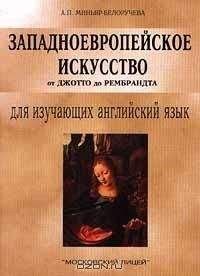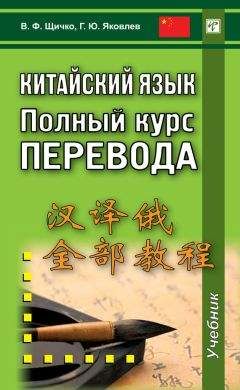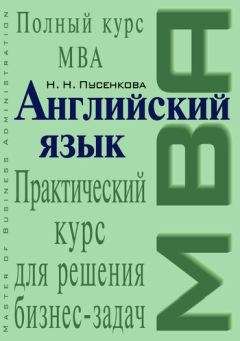Илья Франк - Английский язык с Грэмом Грином. Третий человек
"You'd better show me the place."
"But is Anna all right?"
"The police are watching the flat. They won't try anything else yet."
I didn't want to make a fuss and stir in the neighbourhood with a police car (я не хотел устраивать шум и волнение в окрýге полицейской машиной), so we took trams (поэтому мы сели в трамваи: «взяли трамваи»)—several trams (несколько трамваев), changing here and there (делая пересадки здесь и там = то тут, то там; to change — менять; делать пересадку), and came into the district on foot (и прибыли в тот район пешком). I didn't wear my uniform (я не носил мою униформу = на мне не было униформы), and I doubted anyway (и я все равно сомневался = не думал) after the failure of the attempt on Anna (после неудачи покушения на Анну), whether they would risk a watcher (что они рискнут /выставить/ наблюдателя). "This is the turning (это тот /самый/ поворот)," Martins said and led me down a side street (сказал Мартинс и повел меня по переулку; to lead). We stopped at the kiosk (мы остановились у киоска). "You see he passed behind here (вы видите, он прошел здесь сзади = он зашел за киоск) and simply vanished (и просто исчез)—into the ground (в землю)."
"That was exactly where he did vanish to (именно туда он и исчез)," I said.
"How do you mean (что вы имеете в виду)?"
An ordinary passer-by would never have noticed (обычный прохожий никогда бы не заметил) that the kiosk had a door (что в киоске была дверца), and of course it had been dark when the man disappeared (и, конечно, было темно, когда тот человек исчез). I pulled the door open (я открыл дверь; to pull — тянуть; open — открытый) and showed to Martins the little curling iron staircase (и показал Мартинсу маленькую винтовую железную лестницу; curl — локон; завиток; петля /из веревки/; to curl — виться /о волосах/; клубиться /о дыме/; кривить, искривлять) that disappeared into the ground (которая исчезала в землю). He said, "Good God (милостивый Боже), then I didn't imagine him (тогда я не воображал = не мог себе представить, что он)..."
"It's one of the entrances to the main sewer (это один из входов в главный коллектор; sewer — сточная труба; коллектор, канализационная труба; to sew — вытекать)."
"And anyone can go down (и кто угодно может спуститься вниз)?"
"Anyone (кто угодно)."
"How far can one go (как далеко можно зайти)?"
"Right across Vienna (прямо на другой конец Вены: «прямо через Вену»). People used them in air raids (люди использовали их во время воздушных налетов): some of our prisoners hid for two years down there (некоторые из наших заключенных прятались там внизу в течение двух лет; to hide — прятать/ся/). Deserters have used them (дезертиры использовали их)—and burglars (и грабители). If you know your way about (если знаешь дорогу: «знаешь твой путь вокруг») you can emerge again almost anywhere in the city (ты можешь появиться снова почти везде в городе; to emerge — появляться; всплывать; выходить) through a manhole or a kiosk like this one (через люк или такую будку, как эта). The Austrians have to have special police (австрийцы вынуждены держать специальную полицию) for patrolling these sewers (для патрулирования этих коллекторов)." I closed the door of the kiosk again (я закрыл дверь будки). I said, "So that's how your friend Harry disappeared (так что вот как ваш друг Гарри исчез)."
"You really believe it was Harry (вы действительно полагаете, что это был Гарри)?"
"The evidence points that way (факты указывают в этом направлении)."
"Then whom did they bury (тогда кого они похоронили)?"
"I don't know yet (я еще не знаю), but we soon shall (но мы скоро узнаем: «будем /знать/»), because we are digging him up again (потому что мы собираемся выкопать его наружу снова). I've got a shrewd idea (у меня есть проницательная идея = сильное подозрение; shrewd — пронизывающий, сильный, жестокий /о ветре, погоде/; резкий, острый /о боли/; проницательный; близкий к истине /о подозрениях, догадках, предположениях/), though (однако), that Koch wasn't the only inconvenient man they murdered (что Кох не был единственным неудобным человеком, которого они убили)."
Martins said, "It's a bit of a shock (ничего себе: «это немалое потрясение»)."
"Yes."
"What are you going to do about it (что вы собираетесь делать с этим)?"
"I don't know (я не знаю). You can bet he's hiding out now in another zone (можно поспорить, что он прячется теперь в другой зоне; to hide out — прятаться). We have no line now on Kurtz (у нас нет теперь никакой информации о Куртце), for Harbin's blown (потому что Харбин был выдан /раскрыт/; to blow — дуть; осведомлять, доносить; распространять /слухи и т. п./)—he must have been blown (он должен был быть выдан) or they wouldn't have staged that mock death and funeral (или они бы не инсценировали эту поддельную смерть и похороны)."
"But it's odd (но это есть странно), isn't it (не так ли), that Koch didn't recognize the dead man's face from the window (что Кох не узнал лицо мертвого человека из окна)."
"The window was a long way up (окно было высоко) and I expect the face had been damaged (и я полагаю, что лицо было изуродовано; to expect — ожидать; to damage — повреждать, портить) before they took the body out of the car (прежде чем они вытащили тело из машины)."
stir [stq:], neighbourhood ['neIbqhud], district ['dIstrIkt], notice ['nqutIs], staircase ['steqkeIs], sewer ['sjuq], prisoner ['prIznq], burglar ['bq:glq], emerge [I'mq:G], special ['speS(q)l], inconvenient ["Inkqn'vi:nIqnt], damage ['dxmIG], body ['bOdI]
I didn't want to make a fuss and stir in the neighbourhood with a police car, so we took trams—several trams, changing here and there, and came into the district on foot. I didn't wear my uniform, and I doubted anyway after the failure of the attempt on Anna, whether they would risk a watcher. "This is the turning," Martins said and led me down a side street. We stopped at the kiosk. "You see he passed behind here and simply vanished—into the ground."
"That was exactly where he did vanish to," I said.
"How do you mean?"
An ordinary passer-by would never have noticed that the kiosk had a door, and of course it had been dark when the man disappeared. I pulled the door open and showed to Martins the little curling iron staircase that disappeared into the ground. He said, "Good God, then I didn't imagine him ..."
"It's one of the entrances to the main sewer."
"And anyone can go down?"
"Anyone."
"How far can one go?"
"Right across Vienna. People used them in air raids: some of our prisoners hid for two years down there. Deserters have used them—and burglars. If you know your way about you can emerge again almost anywhere in the city through a manhole or a kiosk like this one. The Austrians have to have special police for patrolling these sewers." I closed the door of the kiosk again. I said, "So that's how your friend Harry disappeared."
"You really believe it was Harry?"
"The evidence points that way."
"Then whom did they bury?"
"I don't know yet, but we soon shall, because we are digging him up again. I've got a shrewd idea, though, that Koch wasn't the only inconvenient man they murdered."
Martins said, "It's a bit of a shock."
"Yes."
"What are you going to do about it?"
"I don't know. You can bet he's hiding out now in another zone. We have no line now on Kurtz, for Harbin's blown—he must have been blown or they wouldn't have staged that mock death and funeral."
"But it's odd, isn't it, that Koch didn't recognize the dead man's face from the window."
"The window was a long way up and I expect the face had been damaged before they took the body out of the car."
He said thoughtfully (он сказал задумчиво), "I wish I could speak to him (хотел бы я поговорить с ним). You see (понимаете), there's so much I simply can't believe (есть так много того, чему я просто не могу поверить)."
"Perhaps you are the only one who could speak to him (возможно, вы единственный человек, кто мог бы поговорить с ним). It's risky though (это, впрочем, рискованно), because you do know too much (потому что вы действительно знаете слишком много)."
"I still can't believe (я все еще не могу поверить)... I only saw the face for a moment (я только видел это лицо один момент)." He said, "What shall I do (что я должен делать)?"
"He won't leave his zone now (он не покинет свою зону теперь). The only person who could persuade him to come over would be you (единственный человек, который мог бы убедить его перейти на другую сторону: «прийти через», были бы вы)—or her (или она), if he still believes you are his friend (если он все еще верит, что вы его друг). But first you've got to speak to him (но сперва вы должны поговорить с ним). I can't see the line (я не могу видеть нить: «линию»)."
"I could go and see Kurtz (я мог бы пойти и встретиться с Куртцем). I have the address (у меня есть адрес)."
I said, "Remember (помните). Lime may not want you to leave the Russian zone when once you are there (Лайм может не захотеть, чтобы вы покидали русскую зону, когда вы там окажетесь: «когда один раз вы есть там»), and I can't protect you there (и я не могу защитить вас там)."
"I want to clear the whole damned thing up (я хочу прояснить все это: «это целое» проклятое дело)," Martins said, "but I'm not going to act as a decoy (но я не собираюсь действовать как приманка; decoy — приманка; манок /для птиц/; западня, ловушка). I’ll talk to him (я поговорю с ним). That's all (это все = и на этом все)."
thoughtfully ['TO:tfulI], persuade [pq'sweId], protect [prq'tekt], decoy [dI'kOI]
He said thoughtfully, "I wish I could speak to him. You see, there's so much I simply can't believe."
"Perhaps you are the only one who could speak to him. It's risky though, because you do know too much."
"I still can't believe ... I only saw the face for a moment." He said, "What shall I do?"
"He won't leave his zone now. The only person who could persuade him to come over would be you —or her, if he still believes you are his friend. But first you've got to speak to him. I can't see the line."
"I could go and see Kurtz. I have the address."
I said, "Remember. Lime may not want you to leave the Russian zone when once you are there, and I can't protect you there."
"I want to clear the whole damned thing up," Martins said, "but I'm not going to act as a decoy. I’ll talk to him. That's all."
14
SUNDAY HAD laid its false peace over Vienna (воскресенье положило свой фальшивый мир над Веной = покрыло Вену своим фальшивым миром; to lay): the wind had dropped (ветер стих) and no snow had fallen for twenty-four hours (и никакого снега не выпало за двадцать четыре часа). All the morning trams had been full (все утро трамваи были полны), going out to Grinzing where the young wine was drunk (идущие наружу /за город/ = выезжающие в Гринцинг, где было выпиваемо = где пили молодое вино) and to the slopes of snow on the hills outside (и к склонам снега на холмах снаружи = на загородных холмах). Walking over the canal by the makeshift military bridge (идя через канал по временному военному мосту; makeshift — замена; паллиатив; временное или самодельное приспособление; кустарный; самодельный; импровизированный; временный), Martins was aware of the emptiness of the afternoon (Мартинс сознавал: «был сознающим» пустоту этого вечера): the young were out with their toboggans and their skis (молодые были за городом: «снаружи» с их санками и их лыжами), and all around him was the after-dinner sleep of age (а все вокруг него было послеобеденным сном /преклонного/ возраста). A notice-board told him (доска объявлений сказала ему) that he was entering the Russian zone (что он входил в русскую зону), but there were no signs of occupation (но не было никаких знаков = признаков оккупации). You saw more Russian soldiers in the Inner City than here (вы видели = можно было видеть больше русских солдат во Внутреннем Городе, чем здесь).




